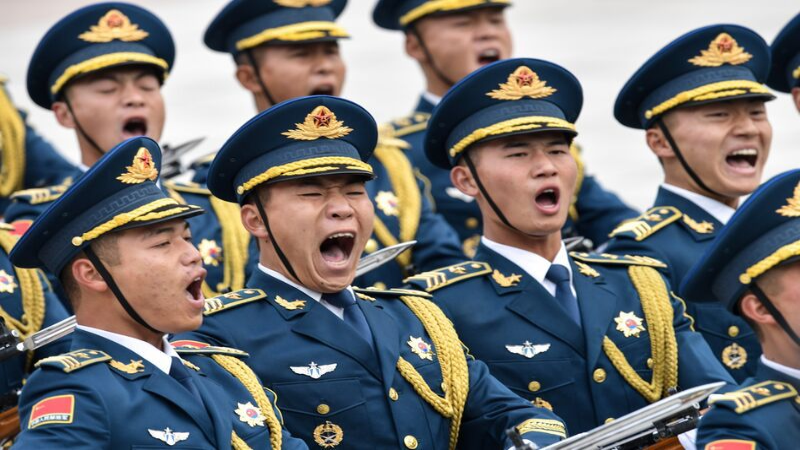
China’s Game Plan for a Taiwan Invasion Is Not a Secret
Two impressive sets of exercises by Beijing’s military, and reports that US officials think Taipei’s missile defenses are weak, make for a scary scenario.
By Fletcher Dean Emeritus James Stavridis, former supreme allied commander of NATO
As increasing tensions between China and the US roil international relations, I am often asked a deceptively simple question: “What would a war over Taiwan look like?”
Frankly, we don’t have to guess much, because two recent sets of Chinese military exercises around the island gave us a pretty good idea of Beijing’s well-formulated battle plan.
The first of China’s major exercises was conducted after former Speaker of the House Nancy Pelosi went to to Taipei in 2022; the second came after Taiwan’s president, Tsai Ing-wen, met with current Speaker Kevin McCarthy this month. The People’s Liberation Army was clearly trying to demonstrate its ability to wage multi-domain war, and show China’s ire over increased diplomatic and military cooperation between the US and Taiwan, which Beijing regards as a “rogue province.”
Based on these exercises, China would likely begin with a ring of combatant warships around the island, with three purposes: cut Taiwan’s economic lifeline by scaring away commercial shipping; demonstrate to the US and the world that it controls the strategically vital South China Sea; and prepare for a Chinese invasion fleet aimed at Taiwan’s shores.
If China succeeded in creating a de facto blockade, it would use long-range cruise and ballistic missiles to devastate the island’s air defenses. This assault would likely target the military’s command-and-control nodes to decapitate the government. Other probable targets would be military airfields, air-defense systems, electronic-warfare centers, fuel-storage areas and ammunition depots.
In the two recent military exercises, China showed the ability to conduct a significant wave of these missile attacks, which could come from warships, aircraft and, of course, the massive unsinkable aircraft carrier 100 miles from Taiwan: the Chinese mainland. Recent news accounts of apparently leaked Pentagon intelligence documents allege that US officials feel Taiwanese air defenses would be overwhelmed by such an assault, and China would rapidly achieve air superiority.
A third element of the attack would be invisible but perhaps most devastating of all: a major cyberattack against every military target on the island. China could also use cyberwar against key civilian facilities to terrify the general population: lights would go out; drinking water and gas for cooking would be shut off; bank accounts and credit cards would be wiped out, rendering normal commerce impossible; and public transportation would face major disruptions.
At that point, however, things might get tricky for Beijing: It would probably need to pause and assess. One big variable is whether Taiwan’s people would rally to protect their shores from a manned invasion. It might seem like a long shot, but we’ve seen how Russia’s invasion only enraged and rallied the Ukrainian population behind the charismatic leadership of President Volodymyr Zelenskiy.
Weapons aren’t everything. The US is working with allies and partners in the region on a coalition strategic response, working primarily with Japan, South Korea and Australia. The Japanese plan to double defense spending by 2027, are acquiring 400 American Tomahawk cruise missiles, and are rapidly moving away from their post-World War II pacifism. The Philippines recently committed to allowing the US to use military facilities on the island of Luzon, very close to Taiwan.
China has made no secret of what its military game plan would look like. It is well thought out — and has the potential to spiral into a full-blown conflict. The key to staving off a Chinese invasion is deterrence through military strength, and China’s recent exercises demonstrate how much the US and Taiwan need to do to achieve it.
(This post is republished from Bloomberg.)
